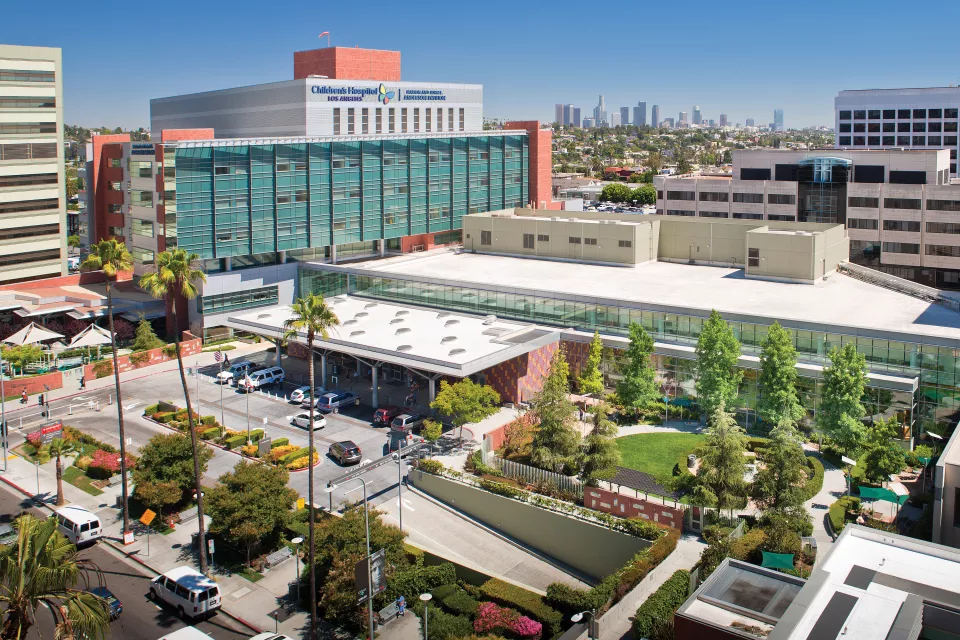Myocarditis is a rare disease affecting heart tissue. Most children with myocarditis do not need to stay in the hospital and go on to make a full recovery. But a small number of children end up with severe heart issues. At Children’s Hospital Los Angeles, our trusted pediatric experts excel in caring for this condition.
We offer the highest level of myocarditis treatment, including specialized inpatient services in our Cardiothoracic Intensive Care Unit. Nationally recognized pediatric cardiologists and other specialists quickly pinpoint the source of your child’s symptoms. We then tailor therapies that offer the best chances for healing.
What Is Myocarditis?
Myocarditis is an inflammation of heart muscle tissue. When the heart is inflamed, it may not work as well as it normally does. Myocarditis usually resolves on its own, but in some cases, permanent damage or scarring of the heart tissue can result from the episode.
Myocarditis can occur in children with no history of heart disease. Causes include:
- Viruses that cause common illnesses, such as chickenpox, a cold, the flu or strep throat
- Abnormal immune system responses in which the body attacks healthy heart tissue
- Infections, toxins or medications that harm the heart
Signs of myocarditis include chest pain and shortness of breath. These are medical emergencies that require immediate care. If your child has symptoms, dial 911. Do not attempt to transport your child to the hospital.
Pediatric Myocarditis Treatment: Why Choose Us
Children’s Hospital Los Angeles is one of the top 10 children’s hospitals in the nation, according to U.S. News & World Report. We are experts in rare and potentially serious conditions like myocarditis. You can count on us for an accurate diagnosis and leading therapies for your child.
Highlights of our program include:
- Same-day access: Our pediatric cardiologists see children with myocarditis symptoms on short notice. We perform a thorough assessment that includes specialized testing to confirm or rule out myocarditis. These efforts help your child receive timely care that lowers the risk of permanent heart damage. Meet our team.
- Family-centered approach: If it’s safe for your child to recover at home, we provide detailed care instructions. Our experts explain how to keep your child comfortable and teach you the signs of complications to look out for. And if you have questions, we are easy to reach by phone or through the MyChildren’sLA patient portal.
- Advanced myocarditis treatments: We offer the full range of heart failure therapies to the small number of children who experience severe myocarditis. Your child’s care may include medication drips, breathing machines (ventilators), extracorporeal membrane oxygenation (ECMO) or ventricular assist devices (VADs), which are implantable devices that help the heart do its job.
- Follow-up care: Children who recover from myocarditis may still experience heart issues, including abnormal heart rhythms (arrhythmias), as they get older. We develop personalized monitoring plans that include imaging tests, like cardiac magnetic resonance image (MRI). This approach helps us detect changes in heart functioning before they become serious.
Myocarditis in Children: What to Expect
Our experts developed an evaluation method that confirms myocarditis and its severity with a high degree of accuracy. We perform a series of tests looking at different aspects of heart functioning. These tests include lab studies to check for signs of heart stress, an electrocardiogram to assess heart rhythm, echocardiography to check heart strength, and cardiac MRI to look for inflammation in the heart muscle. In severe cases, a heart biopsy can be performed to confirm the diagnosis of myocarditis.
Children with mild myocarditis typically recover at home. Severe forms of the disease, which are rare, require a hospital stay. Here’s what to expect:
- Cardiothoracic Intensive Care Unit (CTICU): Severe myocarditis symptoms can become life-threatening, which is why the safest place for your child is our CTICU. A specialized team of doctors and nurses provides around-the-clock care and monitoring. Find out more about cardiac critical care medicine.
- Team approach: Pediatric cardiologists work with other CHLA specialists to determine what’s causing myocarditis and how best to treat it. Your child’s care team may include experts from Infectious Diseases, Rheumatology and more.
- Support: A sudden, severe illness like myocarditis can be difficult on your child and family. We’re here to help. The extended care team includes social workers and Child Life specialists who ease the stress you are experiencing. Nurse coordinators manage the small details of your child’s care so you can focus on healing.
Myocarditis Risk in Children Who Had a COVID-19 Infection or Vaccination
In rare cases, adolescents and young adults experience myocarditis after having COVID-19 or receiving the vaccine. But the likelihood is extremely low, and the vast majority of such cases are extremely mild. Experts across the nation, including those at CHLA, agree that the benefits of being vaccinated far outweigh potential risks of myocarditis. If your child is eligible for the vaccine, it’s best to get it.
Find out more: What parents need to know about COVID-19 vaccines and kids.
